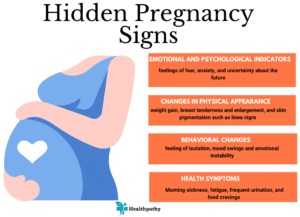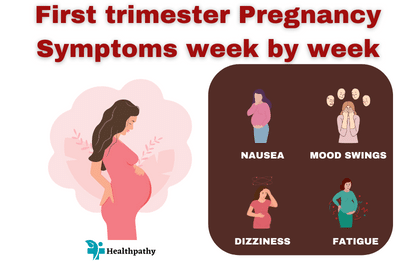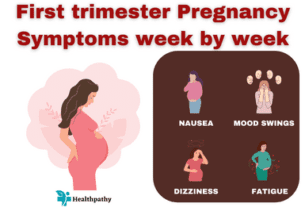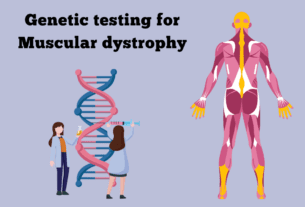Hidden Pregnancy Signs

Pregnancy is an extraordinary journey that brings joy and anticipation to many women and their loved ones. However, there are cases where women conceal their pregnancies from others, a phenomenon known as hidden pregnancy. Hidden pregnancies can occur for various reasons, including fear, shame, or unpreparedness. Uncovering hidden pregnancies is essential for ensuring proper prenatal care and support for both the mother and the unborn child. In this article, we will explore the prevalence of hidden pregnancies, the signs and symptoms that may indicate a concealed pregnancy, the challenges faced by healthcare providers, and the potential health risks for the mother and the baby. Furthermore, we will discuss strategies to overcome barriers and raise awareness to create a more supportive environment for pregnant women.
Statistics on Hidden Pregnancy:
Prevalence of hidden pregnancies:
Hidden pregnancies can be challenging to accurately measure due to their secretive nature. However, various studies and surveys have shed light on this phenomenon. According to a study conducted by the Guttmacher Institute, it is estimated that approximately 1 in 475 pregnancies in the United States is hidden, which represents about 0.21% of all pregnancies.
Age distribution of women with hidden pregnancies:
Hidden pregnancies can occur across all age groups, but certain demographics are more affected than others. Data from the same Guttmacher Institute study revealed that teenagers and young adults between the ages of 15 and 24 are more likely to experience concealed pregnancies compared to older age groups.
Factors contributing to concealed pregnancies:
Numerous factors can lead women to hide their pregnancies. These include fear of judgment, lack of support, financial instability, cultural and religious beliefs, relationship issues, and unplanned pregnancies. A study published in the Journal of Family Issues found that fear of parental disappointment was one of the most common reasons for concealed pregnancies among adolescents.
Hidden Pregnancy Signs:
Changes in Physical Appearance:
While some women may successfully conceal their pregnancies throughout their term, there are physical changes that could hint at a hidden pregnancy. These include weight gain, especially in the abdominal area, breast tenderness and enlargement, and changes in skin pigmentation such as linea nigra (dark line on the abdomen).
Behavioral Changes: Hidden Pregnancy Signs
Concealed pregnancies can lead to significant behavioral changes in women. They may withdraw from social activities, avoid conversations about pregnancy, and exhibit secretive behavior. Moreover, mood swings and emotional instability may become more apparent.
Emotional and Psychological Indicators:
Women experiencing hidden pregnancies may go through a rollercoaster of emotions. Denial of the pregnancy and a sense of isolation are common. Additionally, feelings of fear, anxiety, and uncertainty about the future may contribute to the decision to keep the pregnancy hidden.
Health Symptoms:
Some pregnancy-related health symptoms might manifest, even if the woman is trying to hide her condition. Morning sickness, fatigue, frequent urination, and food cravings are typical symptoms that could raise suspicion of a concealed pregnancy.
Misdiagnoses and Challenges:
Reasons behind misdiagnoses:
Healthcare providers may inadvertently misdiagnose a hidden pregnancy due to a lack of awareness or the woman’s adeptness at concealing her condition. In some cases, medical conditions with symptoms similar to pregnancy, such as ovarian cysts or hormonal imbalances, may lead to misdiagnoses.
Social and cultural factors affecting disclosure: Hidden Pregnancy Signs
Cultural norms, religious beliefs, and societal expectations can play a significant role in the decision to keep a pregnancy hidden. Fear of stigma or judgment from family, peers, or the community may prevent women from seeking prenatal care and disclosing their pregnancies.
The impact of concealed pregnancies on prenatal care:
Delaying or avoiding prenatal care can have serious consequences for both the mother and the baby. Lack of essential medical screenings and prenatal support may lead to undetected medical conditions or complications during childbirth.
Health Risks and Dangers:
Complications due to lack of prenatal care:
Without proper prenatal care, women are at a higher risk of experiencing complications during pregnancy and childbirth. This includes conditions like gestational diabetes, preeclampsia, and low birth weight in babies.
The psychological toll on the mother and her support system:
Concealing a pregnancy can take a significant emotional toll on the mother and her support system. The fear, anxiety, and secrecy surrounding the pregnancy can lead to mental health challenges, affecting both the mother’s well-being and the dynamics within her family.
Overcoming Barriers and Raising Awareness:
Improving healthcare provider training:
Healthcare professionals must receive comprehensive training to identify potential signs of hidden pregnancies and create a non-judgmental environment where women feel safe to discuss their pregnancies openly.
Promoting open dialogue and reducing stigma:
Creating a supportive and understanding environment within families, communities, and healthcare settings is essential in encouraging pregnant women to seek the care they need and to feel comfortable discussing their pregnancies.
Encouraging early prenatal care and screenings:
Public health initiatives should emphasize the importance of early prenatal care and routine screenings to ensure early detection of pregnancies and timely interventions when necessary.
Summary:Hidden Pregnancy Signs
Hidden pregnancies represent a complex and often overlooked aspect of maternal health. Identifying the subtle clues that may indicate a concealed pregnancy is crucial for providing appropriate prenatal care and support to both the mother and the baby. By raising awareness, improving healthcare provider training, and fostering a supportive environment, we can reduce the stigma surrounding hidden pregnancies and enhance the overall well-being of pregnant women. Creating an open and understanding space for women to discuss their pregnancies can lead to healthier outcomes for both mother and child.








